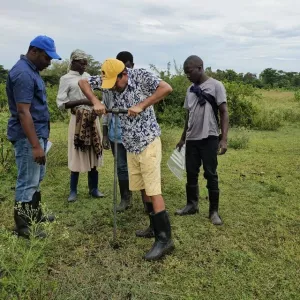Digging deeper: How soil microbes are shaping sustainable agriculture in Kisumu and Vihiga, Kenya
Far from being inert ground, soil is a biologically active ecosystem critical to agricultural sustainability. A 2024 baseline study in Kenya’s Kisumu and Vihiga counties, conducted by scientists from the Alliance of Bioversity International and CIAT, IITA, and KALRO, demonstrates that soil microbial diversity is a key driver of resilient and productive smallholder farming systems. Located in western Kenya, Kisumu

Digging deeper: How soil microbes are shaping sustainable agriculture in Kisumu and Vihiga, Kenya
Far from being inert ground, soil is a biologically active ecosystem critical to agricultural sustainability. A 2024 baseline study in Kenya’s Kisumu and Vihiga counties, conducted by scientists from the Alliance of Bioversity International and CIAT, IITA, and KALRO, demonstrates that soil microbial diversity is a key driver of resilient and productive smallholder farming systems.
Located in western Kenya, Kisumu and Vihiga counties are largely dominated by smallholder agriculture. But these counties face mounting challenges: declining soil fertility, erratic weather patterns, rising temperatures, and nutrient depletion. Understanding what lies beneath the surface is literally the first step to turning things around.

